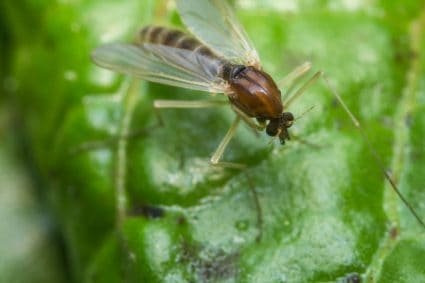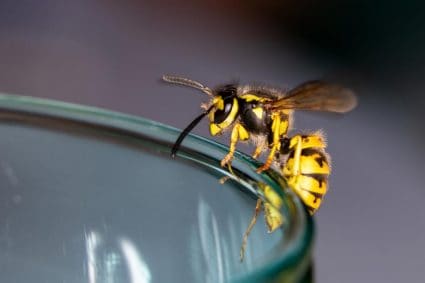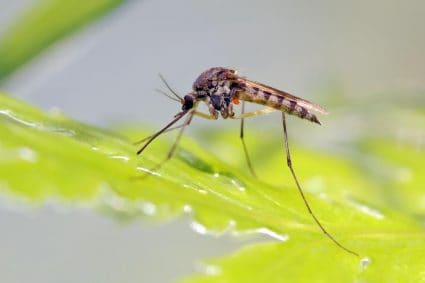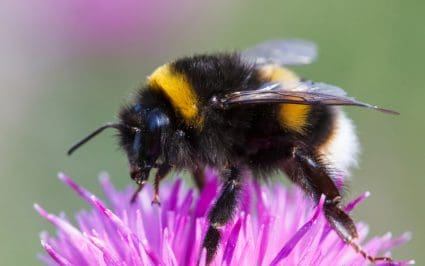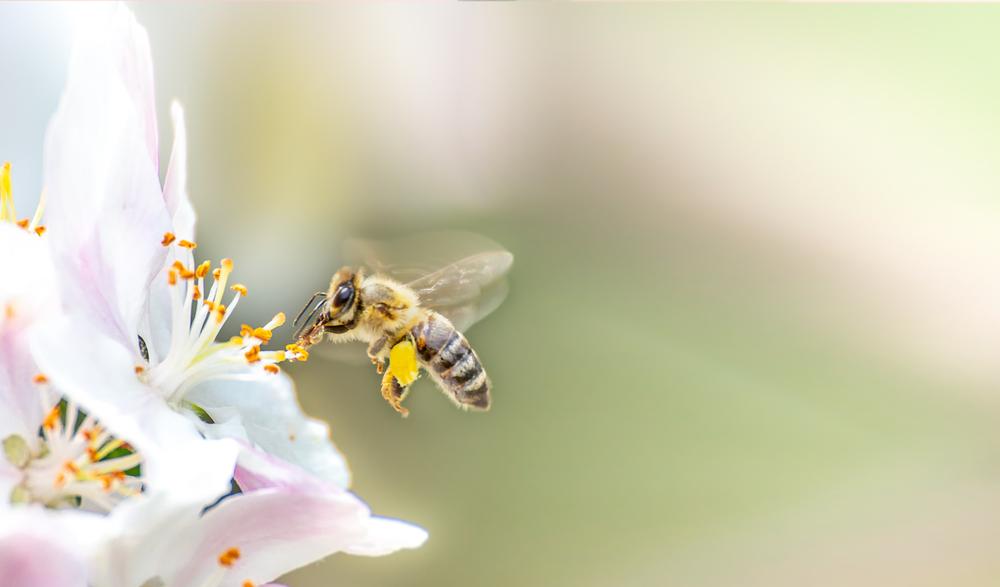
Carpenter bees are known for their habit of boring into wood, causing structural damage over time. Fortunately, there’s a natural solution that can help repel these insects: citrus spray. In this comprehensive guide, we’ll explain how to make and use this simple, eco-friendly repellent.
To make a citrus spray to repel carpenter bees, slice 3-5 citrus fruits and boil them in water for about 10-15 minutes. Once cooled, pour the mixture into a spray bottle. Apply this spray liberally at carpenter bee nest sites and other wooden surfaces that attract these bees, reapplying every few days during the carpenter bee season.
Why Citrus?
Citrus is an effective carpenter bee deterrent because these insects dislike strong smells. The scent of citrus fruits such as lemons, oranges, limes, or grapefruits is particularly unappealing to them. Moreover, citrus oils like limonene and linalool, found in these fruits, are compounds that pests tend to avoid.
Key Ingredients
To make a citrus spray to repel carpenter bees, you’ll need:
- 3-5 citrus fruits (lemons, limes, oranges, or a mix)
- Enough water to boil the fruit slices
- Optional: Citrus essential oil, like citronella or lemongrass oil, to enhance the repellent effect
How to Make Citrus Spray
Follow these steps to prepare your citrus spray:
- Slice your chosen citrus fruits into thin slices.
- Bring water to a boil in a pot, then add the sliced citrus fruits.
- Boil the mixture for about 10-15 minutes to extract the juice into the water.
- Turn off the heat and let the mixture cool.
- Once cooled, pour the mixture into a spray bottle.
Application and Safety Precautions
To use the citrus spray, spray it liberally at the carpenter bee nest sites and other wooden surfaces that attract these bees. Reapply the spray every few days during the carpenter bee season to maintain its effectiveness. Avoid applying the citrus spray on carpenter bee traps, as it can deter the bees and render the traps ineffective.
As with any natural compound, it’s crucial to handle citrus spray safely. Here are some precautions to follow:
- Store the product safely out of children’s reach and away from food.
- Use the product in a well-ventilated area and avoid inhaling the vapor.
- Wash hands thoroughly after handling the product.
- In case of skin contact, wash the area with plenty of water.
- Use personal protective equipment like safety glasses when necessary.
Impact on Other Insects and Animals
While citrus spray is targeted at carpenter bees, it can affect other insects and animals. For instance, citrus oils like linalool and d-limonene can cause toxicity in dogs when ingested or when their skin is exposed to the oil. Always use such products responsibly and follow recommended guidelines to minimize potential harm to non-target organisms and pets.
Preventative Use
Citrus spray can also be used as a preventive measure before the onset of the carpenter bee season. Apply it to potential nesting sites to keep carpenter bees at bay before they become a problem.
In conclusion, citrus spray is an effective, natural method to repel carpenter bees. It’s easy to make and use, and it’s a great way to protect your wooden structures without resorting to harsh chemicals. Remember, though, that while this spray can help repel carpenter bees, it may not be as effective as commercial products specifically designed for this purpose. Always monitor the situation closely and consult a pest control professional if needed.
Frequently Asked Questions
Can I use store-bought citrus juice instead of boiling fresh citrus fruits?
Yes, you can use store-bought citrus juice, but make sure it’s 100% juice with no added sugars or preservatives. The effectiveness might be slightly lower than using fresh citrus fruits.
How often should I reapply the citrus spray?
Reapply the citrus spray every few days during the carpenter bee season, or whenever you notice the scent has faded. The frequency might need to be increased during rainy weather as the spray can be washed off.
Can I use the citrus spray indoors?
Yes, the citrus spray can be used indoors. However, ensure the area is well-ventilated and avoid inhaling the vapor. It’s also essential to avoid spraying it near food or on surfaces where food is prepared.
Will the citrus spray harm my plants?
Citrus spray is generally safe for plants, but it’s always a good idea to test a small area first. If you notice any adverse effects, discontinue use on the plant.
Can I use any citrus fruit for this spray?
Yes, you can use any citrus fruit like lemons, limes, oranges, or grapefruits. You can even mix different types of citrus fruits. The important thing is to extract the citrus oils, which are the active components that repel carpenter bees.

